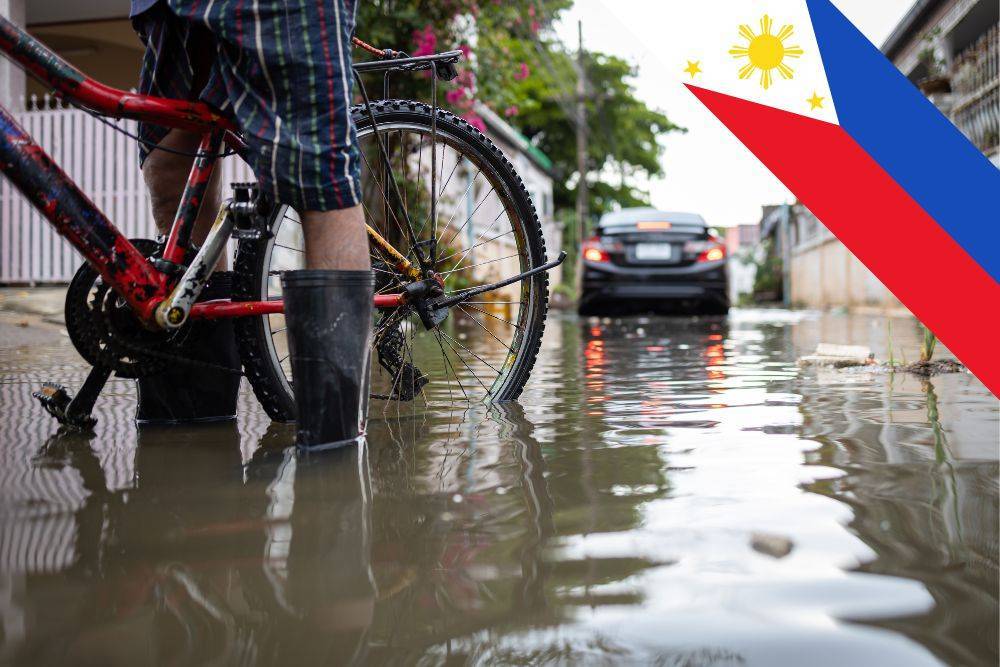As the rainy season descends upon Davao City, the City Health Office (CHO) has issued a bulletin warning residents about the increased risk of leptospirosis.
Leptospirosis is a bacterial disease which affects both humans and animals. It is primarily spread through the urine of infected animals. With the region experiencing frequent flooding, the potential for outbreaks has heightened. This prompted the CHO to take proactive measures to safeguard public health.
Understanding Leptospirosis
Leptospirosis is caused by the Leptospira bacteria. This particular bacteria can enter the human body through cuts or abrasions when individuals come into contact with contaminated water or soil. The disease manifests with symptoms such as fever, headache, body and muscle aches, red eyes, and stomach pain. In severe cases, it can lead to significant complications affecting the liver, kidneys, and brain. This could potentially result in long-term health issues or even death. The mortality rate for leptospirosis can vary, but it has been reported to be around 5-10% of cases. This can be higher in severe outbreaks or when access to medical care is limited
The Impact of Flooding
In 2022, the Department of Health (DOH) reported over 2,000 cases of leptospirosis nationwide. This number tends to spike during the rainy season when flooding is common. Flooding during the rainy season significantly increases the risk of leptospirosis, as floodwaters often contain urine from infected animals, particularly rats. The CHO emphasised that during floods, people are more likely to come into contact with contaminated water, either through wading, swimming, or other activities. The health office has strongly advised residents to avoid these activities to reduce their risk of infection.
Symptoms and Incubation Period
The CHO bulletin highlights that the symptoms of leptospirosis typically appear seven to ten days after exposure to the bacteria. Early symptoms can be mistaken for other illnesses, making awareness and prompt medical attention crucial. The CHO has urged residents to seek immediate medical care when experiencing symptoms such as fever, headache, or muscle pain. This is of utmost importance if they have been exposed to floodwaters.
Preventative Measures and Protective Gear
To mitigate the risk of leptospirosis, the CHO has provided several preventative guidelines for residents. Key recommendations include avoiding direct contact with floodwaters and wearing protective clothing, such as waterproof boots and gloves, when exposure is unavoidable. These measures are particularly important for individuals with open wounds, as the bacteria can easily enter the body through breaks in the skin.
Importance of Hygiene and Rat Control
Maintaining clean and rat-free homes is another crucial aspect of preventing leptospirosis. It is advised for residents to ensure that their living environments are clean and to implement effective rat control measures. This includes proper waste disposal, eliminating food sources that attract rats, and sealing entry points to prevent rats from entering homes. By controlling the rat population, the risk of leptospirosis transmission can be significantly reduced.
Conclusion
The Davao City Health Office’s timely bulletin serves as a crucial reminder of the heightened risk of leptospirosis during the rainy season. By understanding the disease, recognising its symptoms, and taking proactive preventative measures, residents can significantly reduce their risk of infection. The CHO’s efforts to educate the public and promote safe practices are essential in safeguarding the health and well-being of the community. As the rainy season continues, vigilance and adherence to the CHO’s guidelines will be key in preventing the spread of this potentially deadly disease.
Have a pressing question for a doctor? Medical Channel Asia has launched a community forum page where you can get questions answered by a medical specialist. Visit the community forum here.

